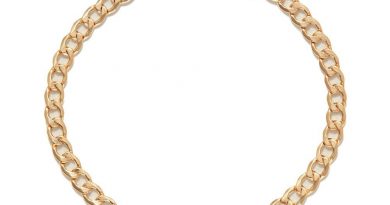Could decaf coffee be banned? A controversy over chemicals is brewing

A significant coffee controversy is brewing as two activist groups and a California lawmaker have petitioned to ban European Method decaf — the most common form of decaffeinated coffee — because it is produced using chemical solvents, including methylene chloride, which bind to the caffeine and extract it from the beans.
The National Coffee Association says the decision would “unjustifiably deny decaffeinated coffee drinkers access to a safe product associated with decreased risk of multiple cancers and other health benefits,” while the petitioning groups have voiced concerns that the federal government is shirking its responsibilities in allowing methylene chloride to be consumed. “FDA has been disregarding the law by permitting these long-established carcinogens to be added to food,” Maria Doa, senior director for chemicals policy at Environmental Defense Fund, said in a statement to Quality Assurance.
In January, the Environmental Defense Fund (EDF) petitioned the FDA to amend their food additive regulations in order to prohibit the use of four chemical solvents, including methylene chloride, from food production. Shortly thereafter, California Assemblymember Eloise Reyes proposed new legislation that would expressly prohibit a “person or entity from using methylene chloride in the process of decaffeinating coffee” starting in 2027.
“The bill would make a violation of these provisions punishable by a civil penalty not to exceed $5,000 for a first violation and not to exceed $10,000 for each subsequent violation, upon an action brought by the Attorney General, a city attorney, a county counsel, or a district attorney,” the legislative counsel’s digest read.
The nonprofit Clean Label Project has been lobbying the state assembly to support the bill, which was introduced on Feb. 1 and has yet to be heard in counsel.
In the wake of the filing, the National Coffee Association and its president issued a statement via email last week, saying that “European Method decaf is authorized as safe by the rigorous standards of the U.S. Food and Drug Administration (FDA), the European Food Safety Authority, Food Standards Australia New Zealand, and other food safety authorities around the world.”
According to the FDA’s current food safety regulations, methylene chloride is acceptable in coffee as a residue from its use as a solvent in the extraction of caffeine from green coffee beans “at a level not to exceed 10 parts per million (0.001 percent) in decaffeinated roasted coffee and in decaffeinated soluble coffee extract (instant coffee).”
“Banning European Method decaf would defy science and harm Americans’ health,” said National Coffee Association president and CEO Bill Murray. “The overwhelming weight of independent scientific evidence shows that drinking European Method decaf is safe and furthermore that drinking European Method decaf, like all coffee, is associated with decreased risk of multiple cancers and other significant health benefits.”
He continued: “Neither EDF nor CLP have presented anything resembling compelling evidence to the contrary, so FDA and the California legislature must reject these baseless proposed bans.”
This push to do away with European Method decaf comes amid other efforts to ban certain chemicals from food production in California. In October, Governor Gavin Newsom signed AB 418 — known as the California Food Safety Act, sometimes referred to colloquially as the “Skittles ban” — into law. The historic legislation bans the “manufacturing, selling, delivering, distributing, holding, or offering for sale” of food products that contain four additives: brominated vegetable oil, potassium bromate, propylparaben, and red dye 3.
Red dye 3 was banned from cosmetic use in the United States in 1990 which helped serve as a precedent for those interested in seeing the substance cut out of food production; similarly, methylene chloride has been banned from cosmetic use since 1989. In a statement at the time, the FDA wrote:
Methylene chloride has been used as an ingredient of aerosol cosmetic products, principally hair sprays, at concentrations generally ranging from 10 to 25 percent. In a 2-year animal inhalation study sponsored by the National Toxicology Program, methylene chloride produced a significant increase in benign and malignant tumors of the lung and liver of male and female mice. Based on these findings and on estimates of human exposure from the customary use of hair sprays, the Food and Drug Administration concludes that the use of methylene chloride in cosmetic products poses a significant cancer risk to consumers, and that the use of this ingredient in cosmetic products may render these products injurious to health.
According to the National Coffee Association, about 10% of American adults — or about 26 million people — drink decaffeinated coffee every day and the majority of decaffeinated coffee has been made using the European Method for more than 50 years.
Read more
about this topic



